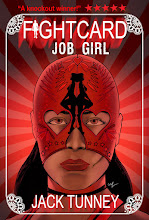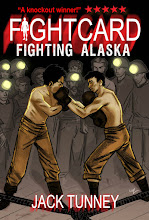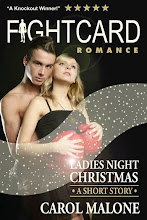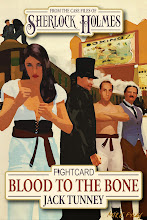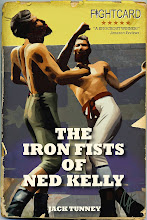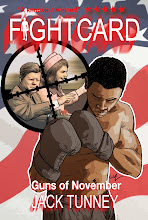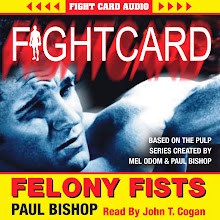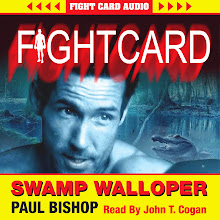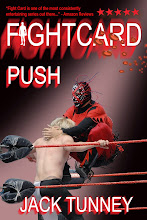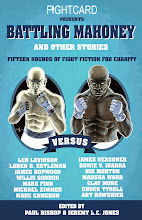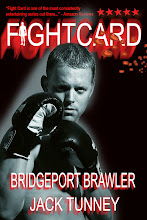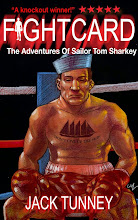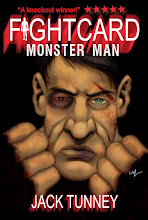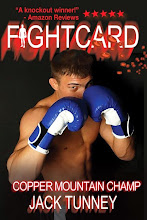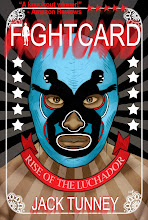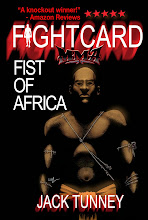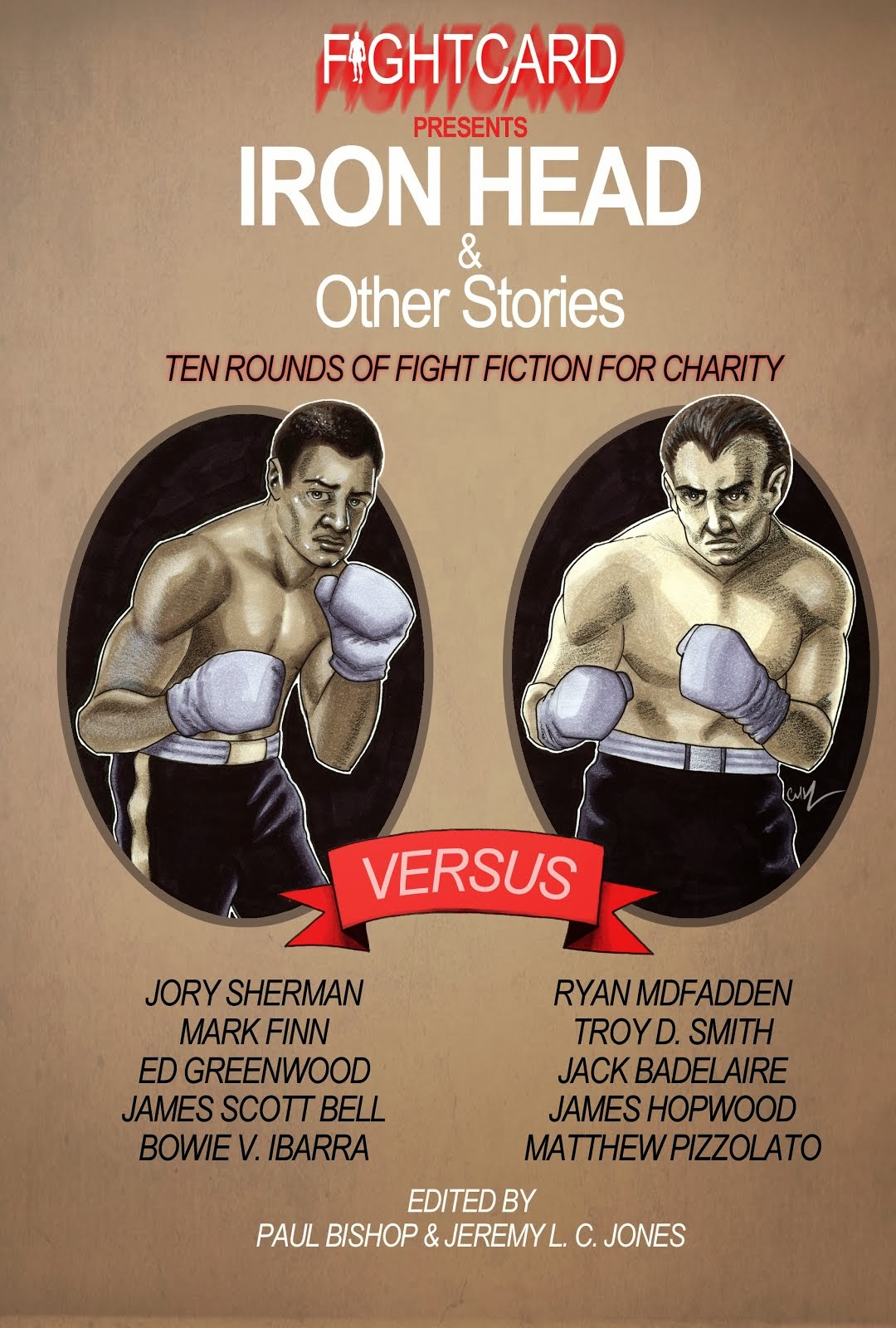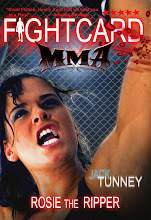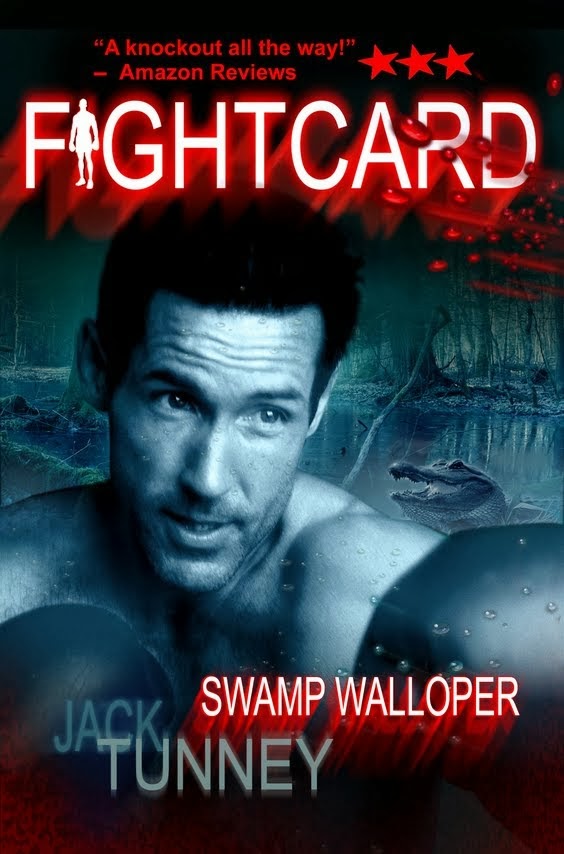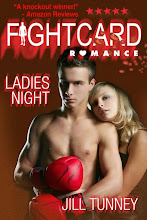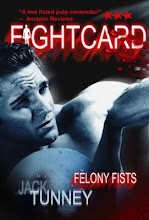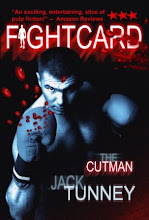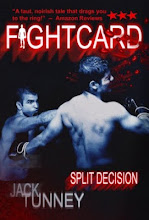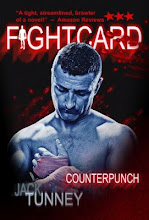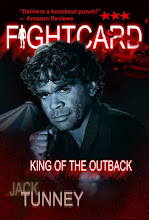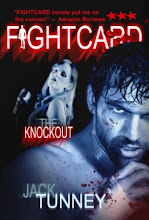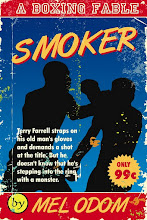Boxing, I suppose, was the humane alternative to ancient blood sports. It is a controlled gladiatorial evolution in some ways. As man became more civilized, so too did his sports. Rules were put into place with football and baseball and even in the case of the sweet science. In that manner it has become tradition. It is a tradition passed down from father to son and, in some cases, daughters as well.
Boxing was always on the tv in my house. My dad, like many fathers before him, taught his sons to box at an early age. It is important to note that my father did not teach his sons how to fight or to be a bully, but more how to protect themselves and put up their dukes when needed.
I have fond memories of watching the ABC Wide World of Sports and seeing legends like Ali, Norton, Foreman, Quarry, among countless others, scrap it out. No matter how many years go by, I can still hear Howard Cosell calling the fights, telling it like it was, so to speak: "This isn't the Muhammad Ali we used to know …Wait! … He's up, he's back! … This is the Ali from the Thriller in Manila!" and so on.
When my father would bring me along for a haircut (and there were many as he was a former Army sergeant), I would always pick up a boxing magazine and read through it as I waited my turn on the butcher's block. Sometimes, when my father wasn't looking or was in the chair himself, I would sneak a peek at the disgusting wrestling magazines with all the blood and gore spewing out of the combatant’s mouths and sometimes eyes – little realizing it was all for show.
Growing up with three older brothers, we got into our fair share of mixing it up in the old school style, without gloves! When I was a little older, me and a few friends would go down into somebody's basement, or wherever there was room, and put on the gloves and spar with each other. We'd knock each other around, sending an opponent this way or that, into the washroom door, usually hearing one of the mothers scream, "What the hell are you kids doing down there?" As a boxer, I knew I wasn't going to win any titles, but it was good, clean fun and nobody was any worse the wear for it, except maybe the door.
Then there were the Golden Gloves bouts at Madison Square Garden. In our family, they were tradition, just as my father would take us to football games, West Point, Yankees and Mets games, and wrestling matches.
My love of boxing continued while watching new fighters come up. Every four years there would be the Olympic Games to watch and this provided some of the very fighters who would turn professional right after the Games were over.
Around this time, HBO and Showtime came into being and prize fights were beginning to become even bigger money and be televised on cable networks. I have distinct memories watching legends like Larry Holmes, Sugar Ray Leonard, Roberto Duran, Thomas "Hit Man" Hearns, Marvin Hagler, Wilfred Benitez, and Michael Spinks fight – no, not all at the same time.
The older champs, such as Foreman and Frazier were retiring from the sport, sometimes going on the other side of the microphone. It seemed there was an excess of fighters waiting to replace them. Evander Holyfield, Hector Camacho, and Buster Douglas started to come up as well as the Golden Boy himself, Oscar De La Hoya. And with Mike Tyson, a new era of boxing icons began.
But some eras were ending. My father passed away in the late 1990's. Through him, I was given a love of boxing. I carry it with me as a sort of tribute to the man. Ali came down with dementia -- even though he was no longer the boxer he had been, he was still the Greatest, just as my father had been.
I have never completely lost interest in boxing as I have other sports. It seems as I grew up, I outgrew the statistics laden conversations of my youth regarding one sports star or another. I couldn't see the sense of grown men being so passionate about the numbers. But boxing was a different story. To this day, I still will watch a fight airing on cable or regular TV.
That's the amazing thing about boxing, I guess. If you watch baseball, football or any other sport, you will see the same thing over and over. With boxing, it's different. You never know what you're going to get. It's an ever-changing sport. Boxing is the only real sport there is, I think. In any other sport, there is equipment and many, many rules. In boxing, there are only a handful of regulations and the only gear fighters receive are gloves, a mouth piece, a towel, a spit bucket and their own brute strength.
I once watched a fight where the fighter had the annoying habit of boxing and then feinting. Feinting is normal, but the way this guy did it was different than any other boxer I ever saw. He would hit, go in for a combination or what have you, and then immediately back up a step or two. It was almost like an old boxing movie where the comedian acted out hit and run. But this was for real and I couldn't take my eyes off of the fight, feeling the other boxer's frustration as well as the crowd's – who were quickly booing.
Needless to say, the boxer lacked the finesse you need in the ring and was knocked out. But you'd never see the batter in baseball hitting the ball and getting on base and then staying on the bag as his team mate hit the ball. That's what this was like, as it was so unorthodox. Boxing, like I've said, is ever-changing.
For the Fight Card series, I chose to write a story unlike any I'd read so far. I'll admit I did a fair amount of research on some of the older fighters. I knew a bunch of them and wanted to do justice to them. I didn't want the story to read false so there lies the research. I watched as much on social networks and video websites as I could and chose to look at it from a reporter's standpoint of the era.
In the end, I hope I mentioned the real boxers in an honorable way. Other boxers from the era, I made up just for the fun of it, and for the reader to maybe decipher which one was real, which one was a composite, and that sort of thing.
I came to write for the Fight Card series upon the request of a writer friend of mine, Kevin Michaels. He wrote his own novella, Fight Card: Hard Road, which was published this year. He is a first-rate writer and pugilist aficionado, and it would be in any boxing enthusiast's best interest to pick up a copy of the excellent Fight Card: Hard Road, as well as any other entries in the Fight Card series.
Boxing is about men not being afraid to be men. In this age, where a man is, in essence an endangered species with feminist crosshairs trained upon it, it is revitalizing to see there are writers willing to write about boxing unapologetically. In the last few decades, there has been a spate of apologies from people (not just men) for just having an opinion. It's fine to have an opinion, but they should have some conviction and some cajones as well. That's why the Fight Card series of books works so well – there are no apologies, nor should there be.
These men spit, bleed, curse, drink, fornicate and sometimes die. Most of all, they punch, get punched and defend themselves. There's no Deconstruction of Man to be found here. I am honored to be a part of this tome.







